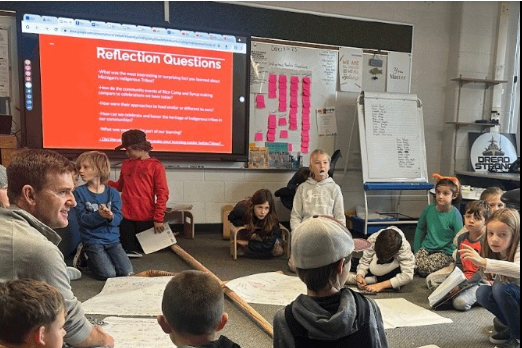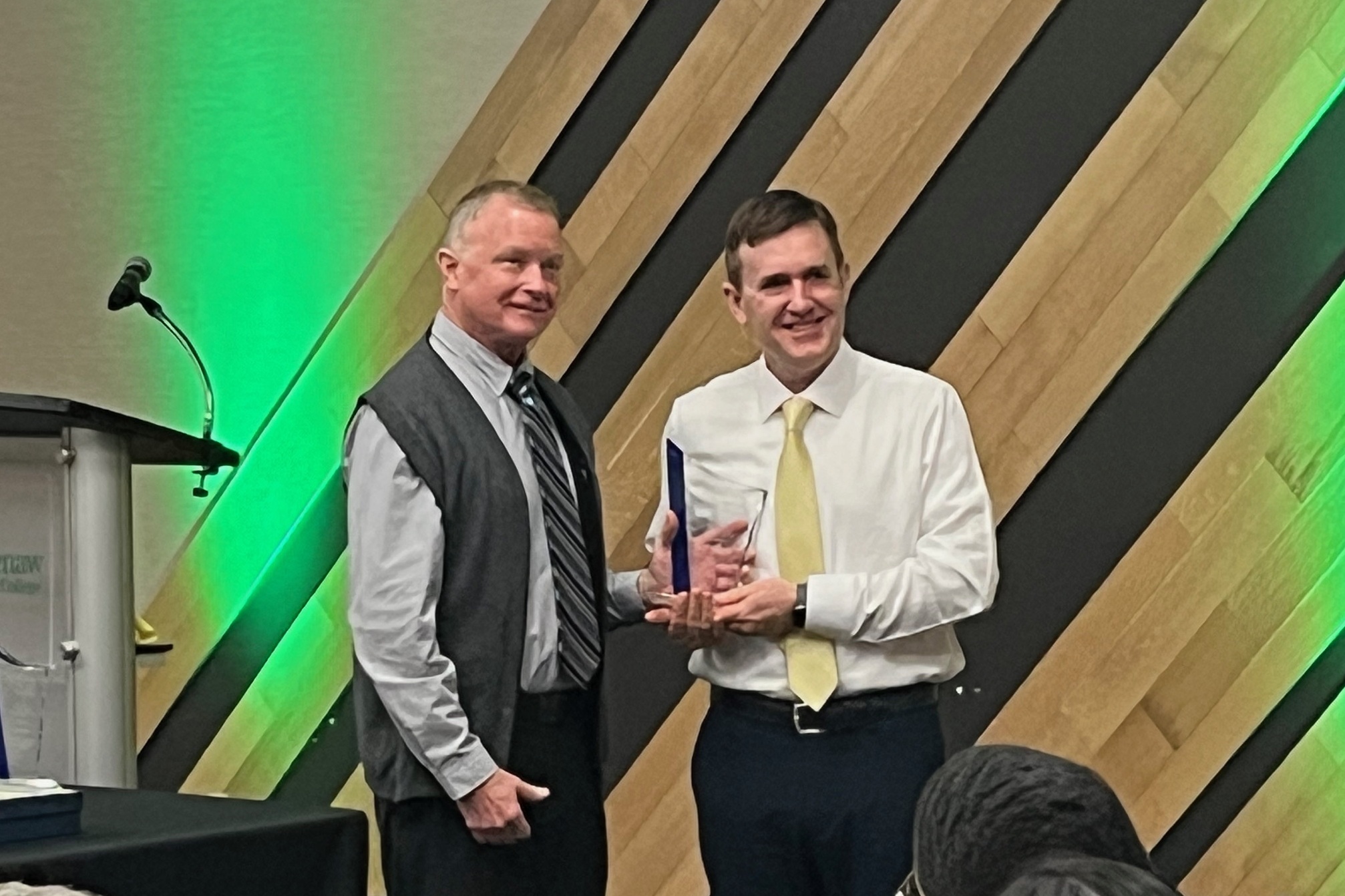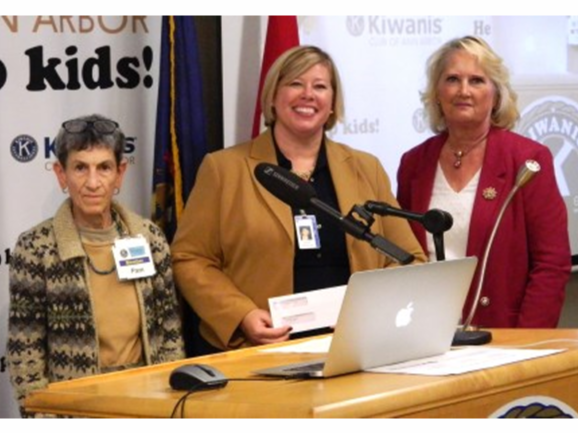It’s an individual award, but for Jim Barnes, a teacher at Wylie Elementary School, it’s really an honor to be shared.
Barnes was honored as the MiSTEM STEM Integration Educator of the Year at the MiSTEM Region 2 Educator of the Year Recognition Banquet, which was held at Washtenaw Community College’s Morris Lawrence Building on Feb 27.
STEM stands for science, technology, engineering and mathematics.
This award recognizes an educator who primarily teaches outside of traditional STEM-fields and who has a consistent record of integration of STEM-principles and high quality STEM-related experiences for students, focusing on the last five years accomplishments.
Barnes is a third-grade teacher at Wylie in Dexter Community Schools.
MiSTEM
Defined by the state of Michigan, MiSTEM “convenes a statewide network of leaders in education, business and local communities to empower the next generation of innovators.” They are working together to prepare learners for the vital, high-demand careers of the future.
As an office of the Michigan Department of Labor and Economic Opportunity, “the MiSTEM Network and MiSTEM Advisory Council work together at the state and local levels to advance PK-12 STEM education, broaden access to STEM experiences and catalyze 3P learning (problem-, project-, and place-based learning) beyond the physical classroom.”
At the banquet and before receiving his award, Barnes was introduced to by Nigora Erkaeva, who is a postdoctoral researcher for the Southeast Michigan Stewardship Coalition – the SEMIS Coalition. She said this is a coalition of community partners, students, and amazing teachers who connect learning to the place where school is located and center their learning around social and ecological issues these communities are facing.
Learning Together
“Today I am honored to introduce MiSTEM Integration Educator of the Year Awardee, Mr. Jim Barnes,” Erkaeva said. “His reflective, restless, and curious students call him Mr. Barnes, and he has been an integral part of the SEMIS Coalition as a master place-based educator.”
She said Barnes teaches math, science, social science and integrates reading and writing throughout using a place-based framework and connecting his students to their community, the natural world, and the history of the place creating culturally responsive teaching.
“For the last few years Mr. Barnes has been integrating indigenous ways of knowing into his teaching in collaboration with one of the indigenous SEMIS Community partners Mr. Jared Ten Brink using his curriculum in his classroom,” she said. “It all started when Mr. Barnes, Mr. Jared Ten Brink and I spent two months centering indigenous history, wisdom and practices through learning about indigenous staple food sources like manoomin (which is a wild rice) and maple syrup and their cultural, nutritious, and practical importance in the life of indigenous tribes then and today!”
During these two months of being in Barnes’s classroom, Erkaeva said she observed how well he reads his students and the context to make sure they are enjoying the process of experiential learning. She said he created a place for active student learning, fostering critical thinking and curiosity, helping them to be persistent in exploring new ideas and expanding their connection to the natural world and communities that lived before the settlement of these lands and how they are living today talking to indigenous elders via zoom.

Giving Thanks
In going before the banquet attendees and receiving his award from Scott Heister – Mi STEM Southeast Regional Director, Barnes took some time to give thanks and say how he feels about the honor. He said the project began as indigenous learning set for six days and turned into two months.
He thanked his wife for her support as well as Wylie Principal Katie See, and he cited his community partners in attendance: Bill Phillips of Trout Unlimited, the SEMIS Coalition, Jared Ten Brink, Nigora Erkaeva as well as his colleagues and mentors who could not be there.
Barnes said learning is also about relationships, listening and connecting with ourselves, others and the world.
He said he has a deep gratitude for his students and community partners.
“I feel like this award is really more than just for me; it’s really for all community partners that I’ve worked with,” he said. “Without their collaboration and support and friendship, this certainly would not be possible. It certainly belongs to all of them also.”
He ended his acceptance speech with a quote from a scientist, enrolled member of the Citizen of Potawatomi Nation and the author Dr. Robin Wall Kimmerer and said, “Responsibilities and gifts are understood as two sides of the same coin. Possession of the gift is coupled with a duty to use it to benefit from all. A thrush is given the gift of song and so it has the responsibility to greet the day with music. Salmon have the gift of travel, so they accept the duty of carrying food up river. So when we ask ourselves, what’s our responsibility to the earth and to each other, we’re also asking what is our gift, so please share yours….Thank you so much.”
Photo: Barnes accepting his award from Scott Heister – Mi STEM Southeast Regional Director. Photo by Lonnie Huhman
Photo Description: Third grade students and Mr. Barnes in the classroom discussing staple food sources of Indigenous cultures in the Great Lakes region. Photo courtesy of the SEMIS Coalition Facebook page.



 8123 Main St Suite 200 Dexter, MI 48130
8123 Main St Suite 200 Dexter, MI 48130


